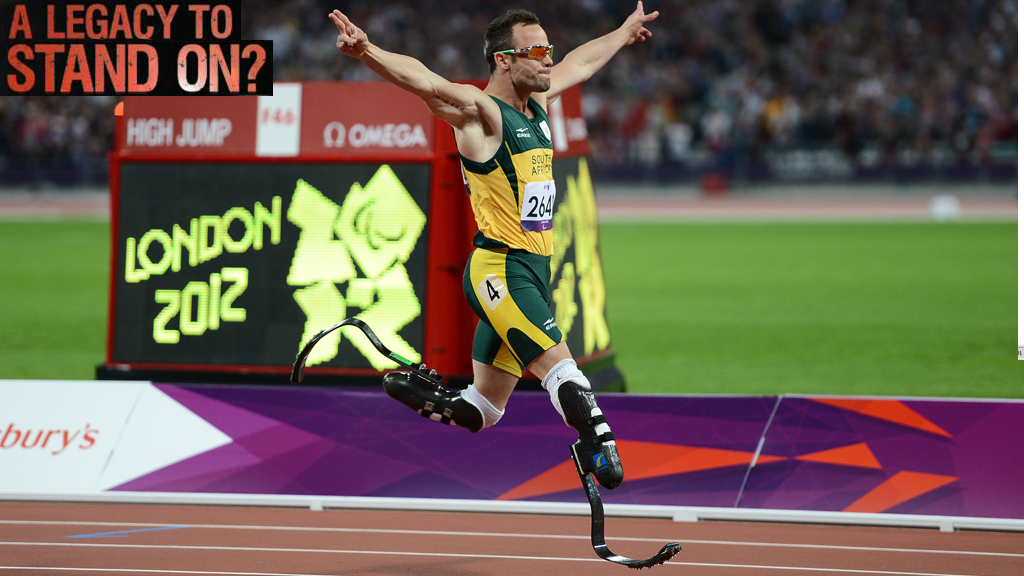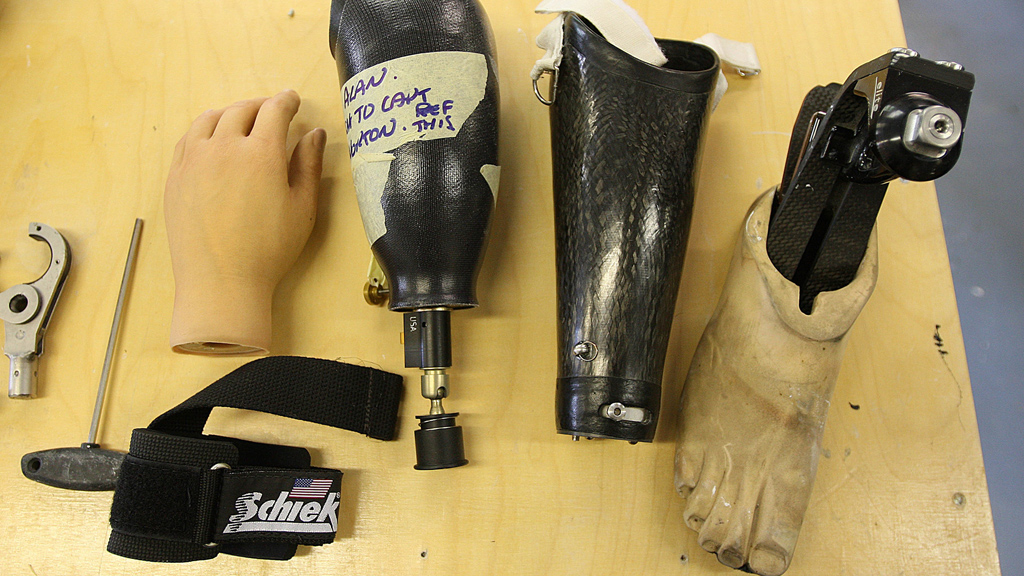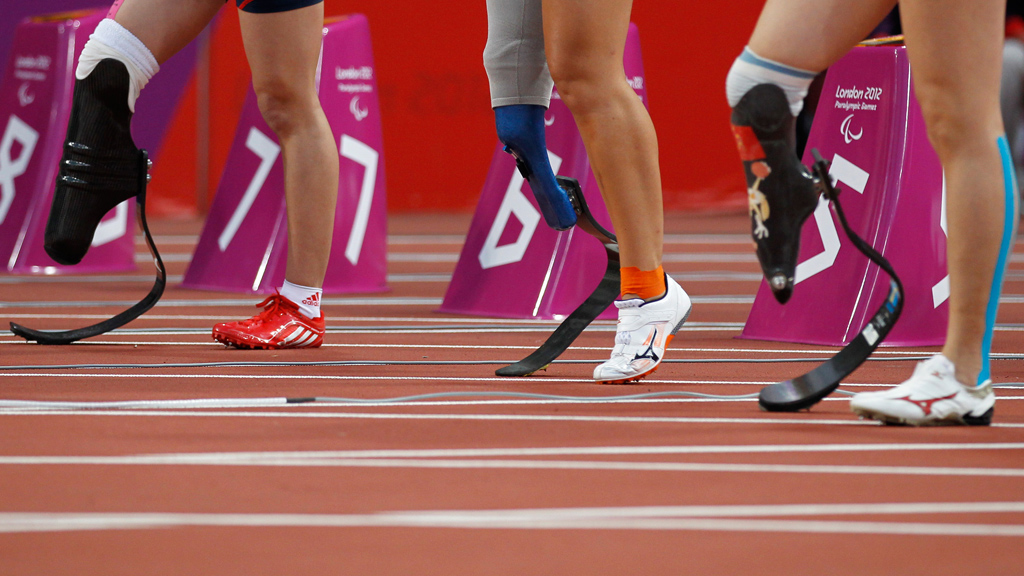‘Blade runner’ not reality for most amputees
Paralympians like Oscar Pistorius inspired the world. But for many amputees, the reality is different, as Paralympic presenter Daraine Mulvihill finds out for our ‘A legacy to stand on?’ series.
The Paralympics showed the world that disabled people can be as strong, fast, capable and successful as anyone.
As an amputee, I was hugely inspired by the likes of Oscar Pistorius and Jonnie Peacock. If they can do it, so can I! What a revelation to have people suggesting amputees had an advantage over their non-disabled counterparts. Talk about flipping a stereotype on its head.
Even getting basic walking legs can be a struggle.
The reality though for many amputees is that they will never reach the dizzying heights of the Paralympics. I’m not just talking about sporting ability, but because the resources just aren’t there to supply blades or special limbs to most average amputees.

I lost my legs when I was 16 after contracting meningitis. At the time I was a competitive cross country runner. My life was turned upside down. I spent eight weeks on a ventilator in intensive care and a full year in hospital recovering. I was lucky to survive but my lower legs and fingers had to be amputated in the process.
I would have thought that I’d be the perfect candidate to get running legs but little did I know that even getting basic walking legs can be a struggle.
Read more in the Channel 4 News special report: A legacy to stand on?
Because I am a double leg amputee, there are so many things that need to be right in order to be able to walk. The fit and alignment are key – it’s all about getting balance right. It’s like getting a pair of shoes – if they don’t fit, you will get blisters and if the heel heights are different you will struggle to walk.
To get it right, you need to spend a lot of time with a specialist. This can be an extremely frustrating process and can result in a lot of wasted time. According to the findings in the Limbcare report, most amputees in the UK only spend an average of 4 hours a year with their prosthetist. In my opinion, this just isn’t long enough.
When you lose a limb it is hard enough. But most people decide to make the best of it and aim to live as normal a life as they can. Which can be very hard is when pain and bad-fitting prosthetics stop you from being able to do that.
I got to meet three other amputees while making this piece for the A legacy to stand on? series. They each had their own unique stories to tell and I could really empathise with them all.
After losing his leg a few years ago, Gerald hoped to return to life as normal and continue working as a camera sales man. Unfortunately, things weren’t that easy for him. He has yet to be given a leg with a knee that works for him.
As a result he is in constant pain, walking around with an ill-fitting prosthetic. He seems to have had one problem after another and feels like there’s no one there to help and support him from the NHS. Gerald feels frustrated with the system. He can’t find the answers he’s looking for and at the moment it seems he has a long wait ahead before things get sorted.

Carol spent a few years trying to get by on the basic leg the NHS gave her. Not only was it ill-fitting, but it caused her severe pain and made her trip up quite regularly. Enough was enough, Carol decided to take matters into her own hands and raised the £30,000 needed to fund a “C Leg” which would enable her to walk without constantly worrying about falling. A basic requirement, you might think. Now she can walk her dog and do her shopping with ease. However, what worries her are the on-going costs required to keep the leg adjusted and eventually replace it when the components wear out.
Kieron lost his leg just over a year ago after having cancer. At just 14, he wishes he could run around with his friends or even just walk into town without using his crutches. His family have spent the last few months fundraising to get him a new leg because the NHS one just isn’t fit for purpose.
The sad reality is that all amputees aren’t treated equally.
Luckily for him, lottery winners Colin and Chris Weir have stepped in and offered to fund Kieron’s legs over the next few years. They will be able to afford a better knee joint which will hopefully mean Kieron can have his life back. This has come as such a relief to Kieron’s family, as the constant fundraising was beginning to wear them down.
I think most people will be shocked to know how difficult it is to acquire basic prosthetics. I was surprised to hear that most amputees decide not to wear a prosthetic limb at all. The pain and time involved just isn’t worth it for most of them. It’s unrealistic to wish all amputees could have access to the high-end bionic limbs that are now available. But the least people should have is a well-fitting and pain-free prosthetic.
If given the right technology and support, amputees can achieve amazing things. They can run, jump and walk, pain-free. The sad reality though is that all amputees aren’t treated equally.
Follow Daraine on Twitter @darainemul
